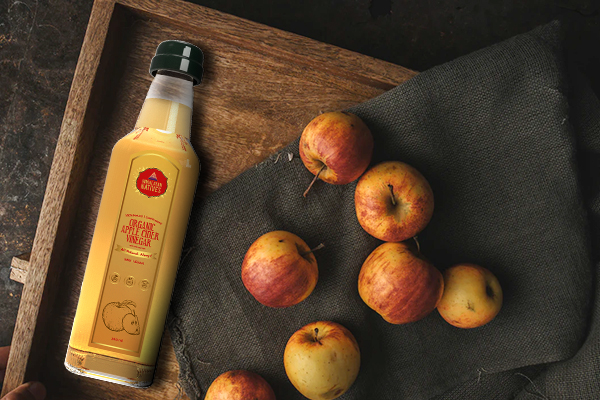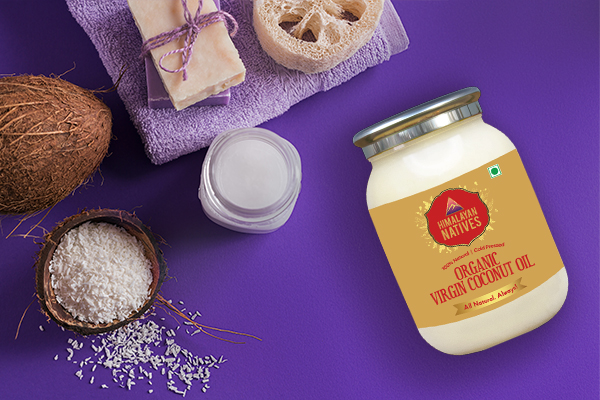
In our current age, marked by a growing awareness of health and well-being, the pursuit of accurate and reliable information concerning healthy eating has taken center stage.
With people increasingly focusing on their health, sound dietary advice has gained popularity, especially in light of healthy food myths. However, navigating the vast landscape of nutritional advice has proven to be a difficult task. In a sea of recommendations, distinguishing between evidence-based information and pervasive myths becomes critical.
Amidst the plethora of recommendations and guidelines, a considerable number of myths have persisted, casting a shadow of confusion and misinformation.
The abundance of conflicting narratives about healthy eating has hindered individuals from making informed dietary choices. These myths hinder individuals from discerning what constitutes a health-conscious diet, leading to choices that may not align with their actual health goals.
This blog post debunks five prevailing myths about healthy food, empowering readers to make mindful, well-informed dietary choices. To foster a more informed and conscious relationship with food, the goal is to dismantle these misconceptions.
1. Myth: All Fat is Unhealthy

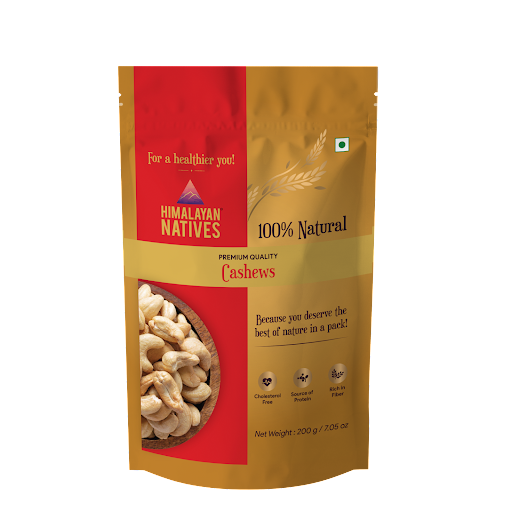
The misconception that all fat is detrimental to health has led to a widespread fear of fats in the quest for a healthy diet. However, not all fats are created equal.
Healthy fats, such as those found in avocados, nuts, olive oil, and premium selections from Himalayan Natives Dry Fruits, are essential for various bodily functions, including nutrient absorption and brain health.
These fats can even aid in weight management by promoting a feeling of fullness.
To truly embrace a balanced and healthy diet, it's crucial to differentiate between healthy fats and their less nutritious counterparts.
Saturated and trans fats, often found in processed and fried foods, should be limited, but incorporating sources of healthy fats, like those present in Himalayan Natives Dry Fruits, is key to overall well-being.
By incorporating these high-quality, nutrient-rich options into your diet, you not only enhance the taste and texture of your meals but also contribute to your body's optimal functioning and long-term health.
2. Myth: Carbohydrates are the Enemy
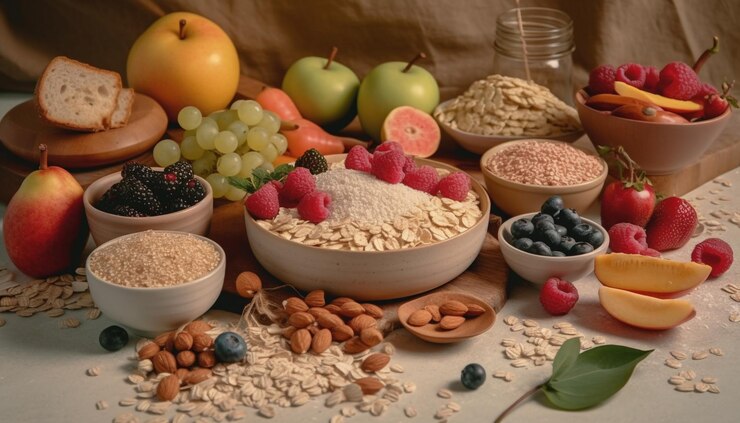
Carbohydrates have often found themselves under scrutiny in the realm of healthy eating, unfairly earning a reputation that oversimplifies their impact on our well-being.
While it's undeniable that refined carbohydrates, prevalent in sugary snacks and white bread, can contribute to issues like weight gain and blood sugar spikes, it's essential to recognize the nuanced nature of carbohydrates.
Carbohydrates, comprising whole grains, fruits, and vegetables, are essential for a balanced and healthy food regimen, offering vital nutrients like vitamins, minerals, and dietary fiber crucial for digestive health and blood sugar regulation.
Often overshadowed in the carbohydrate discourse, these unprocessed options stand in stark contrast to the drawbacks of refined carbohydrates.
In making informed choices for overall health, opting for whole, unprocessed sources such as quinoa, brown rice, and diverse fruits and vegetables is crucial. This approach ensures sustained energy and essential nutrients, avoiding the pitfalls of refined carbohydrates and supporting a holistic healthy food-focused diet.
3. Myth: Eating Healthy is Expensive

Misconceptions about Healthy Diets
Misconception that a healthy diet requires substantial financial investment.
Misconception that specialty health foods are expensive.
Health-conscious diets are based on simple, affordable choices.
Cost-Effective Diet Strategies
Make mindful food choices and consume in bulk.
Seasonal fruits and vegetables offer variety and affordability.
Bulk buying reduces costs by benefiting from economies of scale and ensuring a steady supply of essential ingredients.
Home-prepared meals, especially with Himalayan Natives products, are key for budget-friendly, nutritious eating. By controlling ingredients and avoiding impromptu purchases, you optimize your grocery budget and infuse meals with essential nutrients.
Himalayan Natives adds authenticity and nutrient richness with natural and organic produce, enhancing flavor and nutritional density. This combination supports a healthy, budget-friendly diet, making informed choices for both physical health and financial sustainability.
The synergy of cost-effective strategies and Himalayan Natives' offerings ensures a holistic approach to well-being, prioritizing health without compromising taste or financial stability.
4. Myth: Going Gluten-Free is Always Healthier
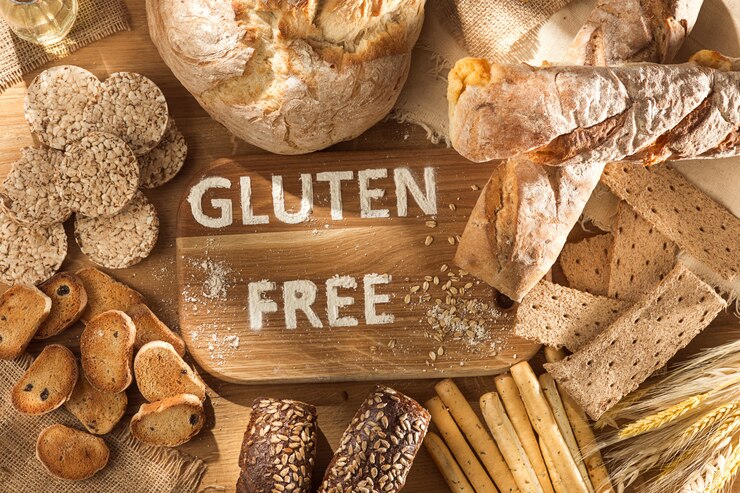
The surge in popularity of the gluten-free trend has captivated the attention of health-conscious individuals, with the widespread belief that eliminating gluten holds the key to a healthier lifestyle.
While it is true that individuals with gluten sensitivity or celiac disease must adhere to a gluten-free diet for medical reasons, it is crucial to recognize that for those without these conditions, avoiding gluten may not confer additional health benefits and could potentially lead to nutritional deficiencies.
Gluten-Free Diet Overview
Gluten found in wheat, barley, and rye.
Whole grains with gluten provide essential nutrients.
Adopting a gluten-free diet without medical need may cause nutritional imbalances.
Safe whole grains, including gluten-containing ones, provide diverse essential nutrients.
Quinoa, brown rice, and oats are excellent gluten-free alternatives.
Decisions should align with individual health needs.
For those without gluten-related concerns, embracing a variety of whole grains promotes a nutrient-rich eating pattern, supporting overall health through informed dietary choices and a holistic approach to healthy food.
5. Myth: Healthy Food is Bland and Boring

A pervasive myth surrounding healthy eating is that it entails sacrificing flavor and enjoyment. In reality, a nutritious diet can be vibrant, delicious, and diverse. Herbs, spices, and healthy cooking techniques can elevate the taste of wholesome meals without compromising nutritional value.
Experimenting with different cuisines, trying new recipes, and discovering the variety of flavors in fresh, whole foods can make the journey to a healthier lifestyle exciting and enjoyable. Breaking free from the misconception that healthy food is bland opens up a world of culinary possibilities.
Conclusion,
Our mission in debunking these five myths about healthy food is rooted in the empowerment of individuals to make well-informed choices that harmonize with their well-being goals.
The key lies in embracing a balanced diet characterized by a diverse array of nutrient-dense foods. Moderation becomes the guiding principle, allowing individuals to relish both fats and carbohydrates without undue restrictions.
Crucially, dispelling misconceptions about the perceived high cost and bland taste of healthy eating is pivotal. This dispelling opens up a path to a sustainable and enjoyable approach to nutrition, breaking free from common barriers that hinder dietary improvements.
In navigating the intricate landscape of dietary advice, our call is to prioritize evidence-based information. By doing so, we lay the foundation for a positive relationship with food that serves not only the body but also nourishes the soul.
The journey towards a healthier lifestyle should be guided by well-founded knowledge, fostering a holistic understanding that transcends mere nutritional guidelines.
As individuals navigate their unique dietary paths, this approach ensures that the pursuit of well-being is not just a physical endeavor but a fulfilling and sustainable journey that encompasses both body and soul.
Your Fitness Journey Starts Here
Embarking on a fitness journey that doesn't have to be overwhelming. By addressing these five myths about healthy foods into your daily life, you're laying a strong foundation for a healthier and more active lifestyle. Remember, small changes can lead to significant results. Here's to your journey towards a fitter, healthier you!
For more exciting and super easy health tips, check out our Facebook and Instagram, we share those daily.
Frequently Asked Questions (FAQs):
1. Do I have to follow a specific diet trend to be healthy?
Answer: No, there's no one-size-fits-all approach. Healthy eating involves a balanced and individualized diet, not necessarily conforming to popular diet trends.
2. Can I only find healthy food in specialty stores?
Answer: No, you can find nutritious options in regular grocery stores. Focus on whole, unprocessed foods like fruits, vegetables, lean proteins, and whole grains available in most supermarkets.
3. Is it necessary to count calories for a healthy diet?
Answer: Not necessarily. While calorie awareness is useful, focusing on nutrient-dense foods and mindful eating is more important for overall health.
4. Are all organic foods healthier than non-organic alternatives?
Answer: Not necessarily. While organic foods can reduce exposure to pesticides, choosing a variety of fruits and vegetables, whether organic or not, is more important than fixating solely on the organic label.
5. Can I achieve a healthy lifestyle without exercising regularly?
Answer: Regular exercise is beneficial for overall health, but a healthy diet is a crucial component. While you can improve your health with proper nutrition alone, combining it with regular physical activity provides more comprehensive well-being benefits.
 HELPFUL0 people found it helpful
HELPFUL0 people found it helpful
Related Blogs
Subscribe to Our Blogs
and never miss on the latest update!








